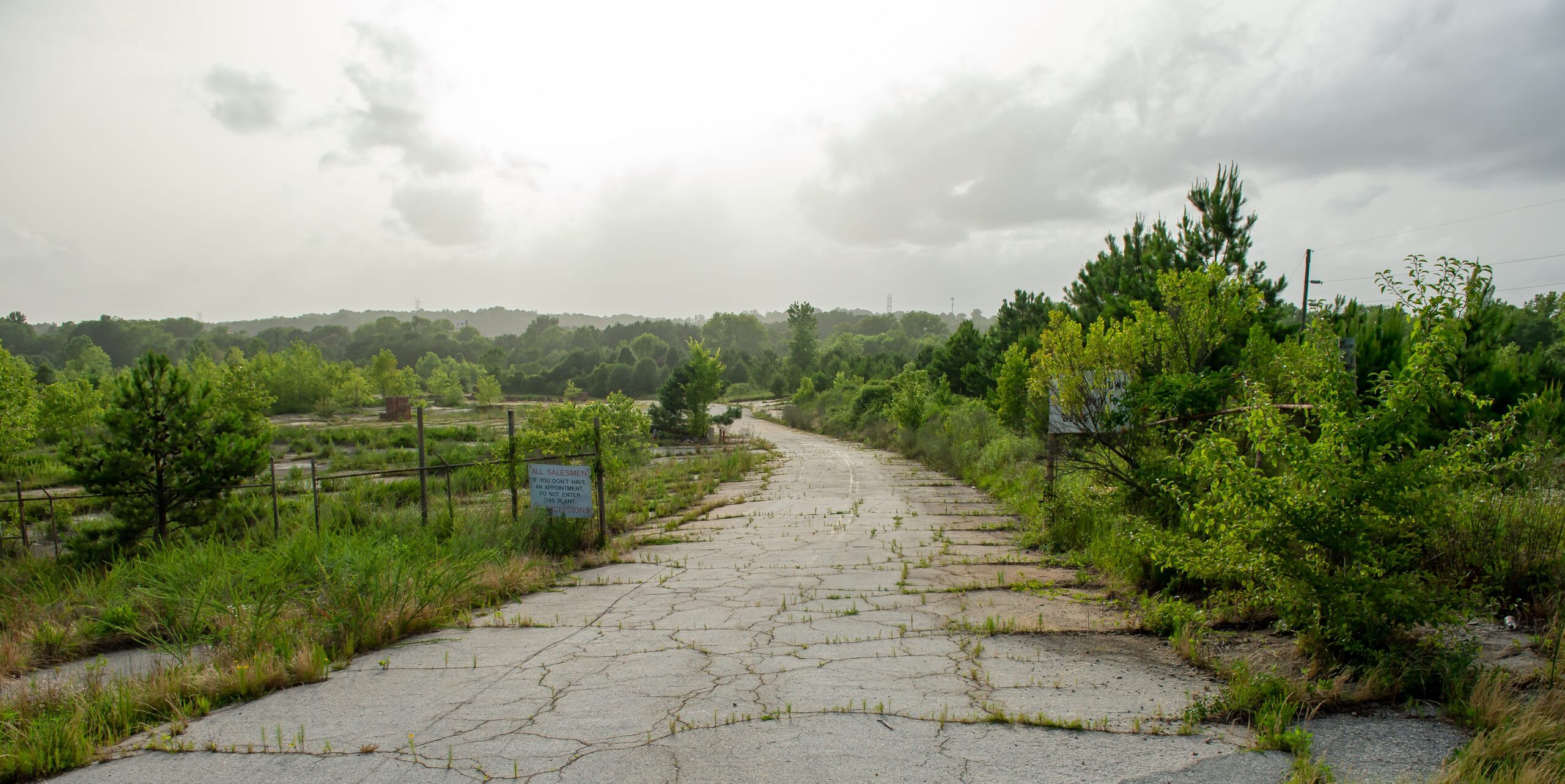Updated at 10:35 a.m. Sunday
Norfolk Southern is stopping work on a rail facility in northwest Atlanta that had drawn opposition from local community and environmental groups, as well as from city officials.
On Saturday, the day after Mayor Keisha Lance Bottoms’s office announced it had filed a petition with the federal Surface Transportation Board to stop construction of a fuel terminal at the former site of the Chattahoochee Brick Co., Norfolk Southern said it would halt work immediately while the company continues discussions with the city.
The brick company, located on the Chattahoochee River, had relied on forced convict labor to churn out millions of bricks in the late-19th and early-20th centuries.
The factory was owned by former Atlanta Mayor James English. And it operated under horrible conditions. Workers – mostly Black men, many arrested for petty crimes, then forced to work — were beaten, fed rotting food and lived in filth.
“Large numbers of them had done nothing to deserve the fate that befell them,” said Doug Blackmon, author of the Pulitzer Prize-winning book about convict labor, “Slavery By Another Name,” which includes research on the horrors of the brick factory.
“They were starved and whipped and just treated in the most cruel ways,” he said. “Large numbers of people died there. And some of those people were buried there.”
Norfolk Southern, which is moving its headquarters to Atlanta, says in addition to environmental reviews, it has also hired experts to conduct archeological and historical surveys, as well as excavations at the site.
“We share the Mayor’s view of the historical significance of this site and recognize that any entity seeking to develop it takes on a special responsibility to do so in a socially and environmentally responsible way,” Norfolk Southern spokesman Jeff DeGraff said in an email.
Neighbors and local activists have advocated for years to turn the location into a memorial to the victims of convict leasing, instead of allowing industrial development to proceed.
On Friday afternoon, the mayor’s office announced it had filed a petition with a federal agency that oversees railroads to stop construction of the ethanol unloading facility being built by Norfolk Southern.
“Our Administration will do everything it can to protect the sanctity and significance of this property,” the mayor said in a release from the city. “A site of such historic and environmental importance needs careful consideration before even limited development occurs.”
The Bottoms administration had, to this point, been quiet on the question of what should happen with the site, though last year the Atlanta City Council weighed in and asked Norfolk Southern to change its plans.
In its petition to stop work on the project, which cites prior reporting by WABE, the city writes that the site is of “tremendous historical and cultural significance to the citizens of the city of Atlanta.”
Donna Stephens, a neighborhood activist who has been leading the fight to stop the industrial development, said the news that the city was stepping in had brought her to tears Friday.
“I’m extremely happy,” said Stephens, who works with the Proctor Creek Stewardship Council and other community and environmental groups in the area. “There have been days where a number of us have been like, ‘Should we just throw in the towel?’ Because it felt like we weren’t getting anywhere.”
Stephens and others first started advocacy around the site five years ago, when a different company had planned a similar fuel terminal. That project appeared to stall a few years ago when the city denied it a key permit.
Norfolk Southern, which has tracks adjacent to the site, announced last year that it was leasing the property from the original company, with plans to build the ethanol facility.
“We should have continued pushing to make sure everything got resolved,” the first time, said Bob Kent, who lives near the property and has been working with Stephens. “Now, thanks to the mayor, we get a chance to recover.”
In addition to a memorial, Kent said he’d like to see a park, affordable housing and commercial development — just not industrial development — built on the property, which sits on the Chattahoochee River near the confluence with Proctor Creek.
Norfolk Southern says it will build some type of memorial as part of its development, though officials have said they don’t know what form it would take. The company has held meetings with some community members and with the Atlanta History Center about the site.
“From a corporate responsibility perspective, you can’t say, ‘That just happened in the past,’ and expect to move forward,” said Vanessa Sutherland, an attorney for Norfolk Southern, on a recent episode of “Crucial Conversations,” a program produced by Georgia State University’s Rialto Center.
Earlier this week, Kent and Stephens were joined by other activists, pastors and former Atlanta politicians for a press conference at the site, where they called on the city to step in and stop Norfolk Southern’s work.
“We’re asking Mayor Bottoms, fight against this deal,” former state Sen. Vincent Fort said at the event. “Use the power of the office to stop this moral, economic and environmental injustice.”
City Councilman Dustin Hillis, whose district includes the property, said in an email that he was glad to hear about the city’s move to stop the development, and he’s confident they will prevail.
“I stand with our nearby neighborhoods, historic preservationists and environmental advocates who have been tireless in their efforts fighting this development,” he said.
Norfolk Southern says it does not have any evidence of a cemetery on the site, “but given the tragic legacy of the site we have continued to exercise great care.”
But Blackmon said that doesn’t mean there aren’t people buried there.
“Every place like this had a burial ground,” he said. “Because people died so frequently in these places.”
A 1960s map of the site includes a note about a “temporary cemetery.”
Blackmon, who served on Atlanta’s confederate monuments advisory committee, said there aren’t any memorials to the victims of the convict leasing system in Georgia, though the committee did suggest creating one.
“Atlanta, rightfully, is so proud of being the home of Dr. Martin Luther King and the cradle of the Civil Rights Movement,” he said. “That obscures what a terrible place Atlanta was in terms of race before World War II.”
He said he doesn’t know what’s possible in terms of a memorial at the Chattahoochee Brick site, but he said there should be a conversation about what happened there among people who live near it now, descendants of people victimized there, and people connected to the companies that made money there.
“We need to be honest about that history. And we’ve refused to be honest about it up to now,” he said.










